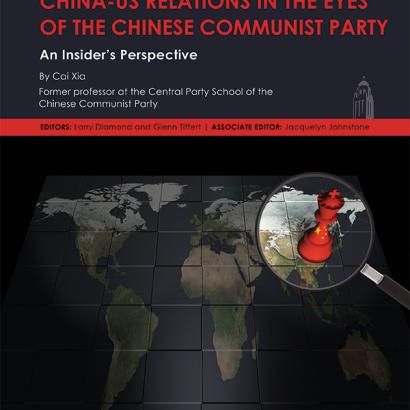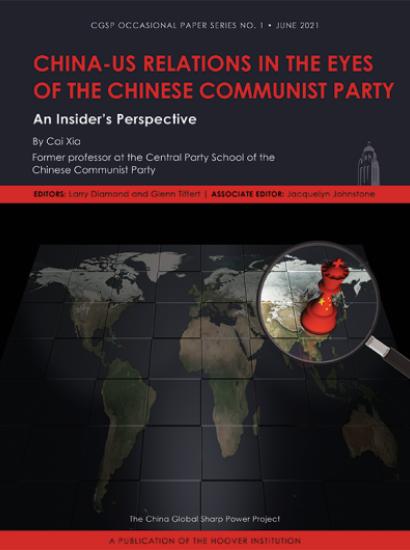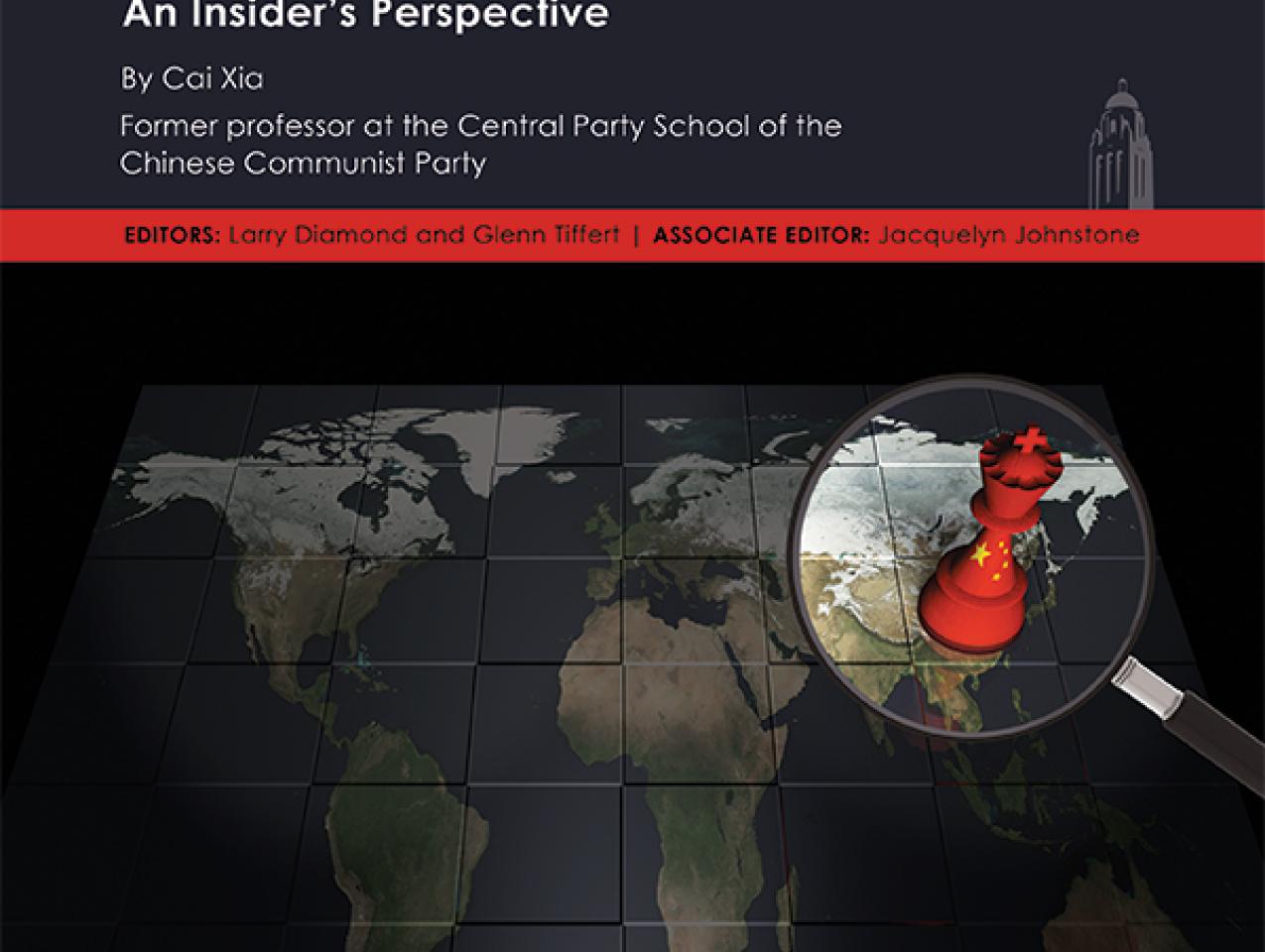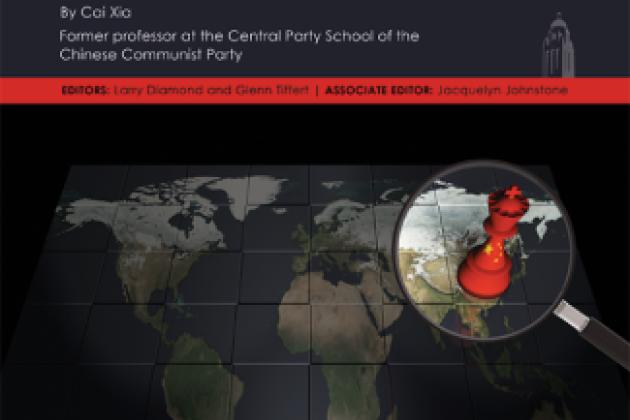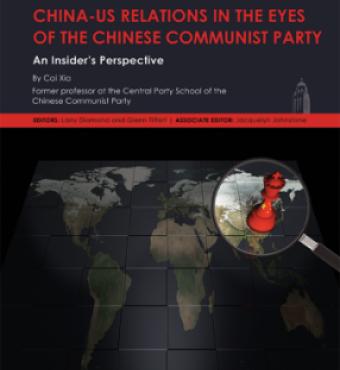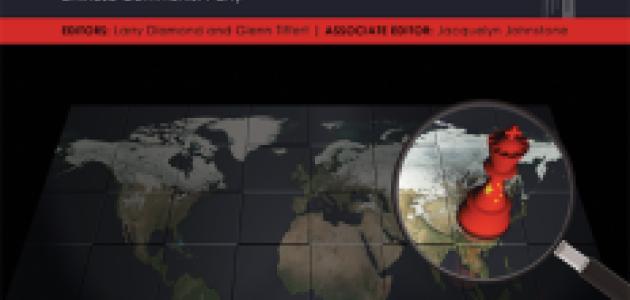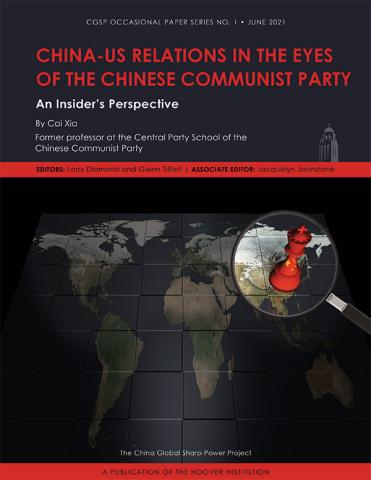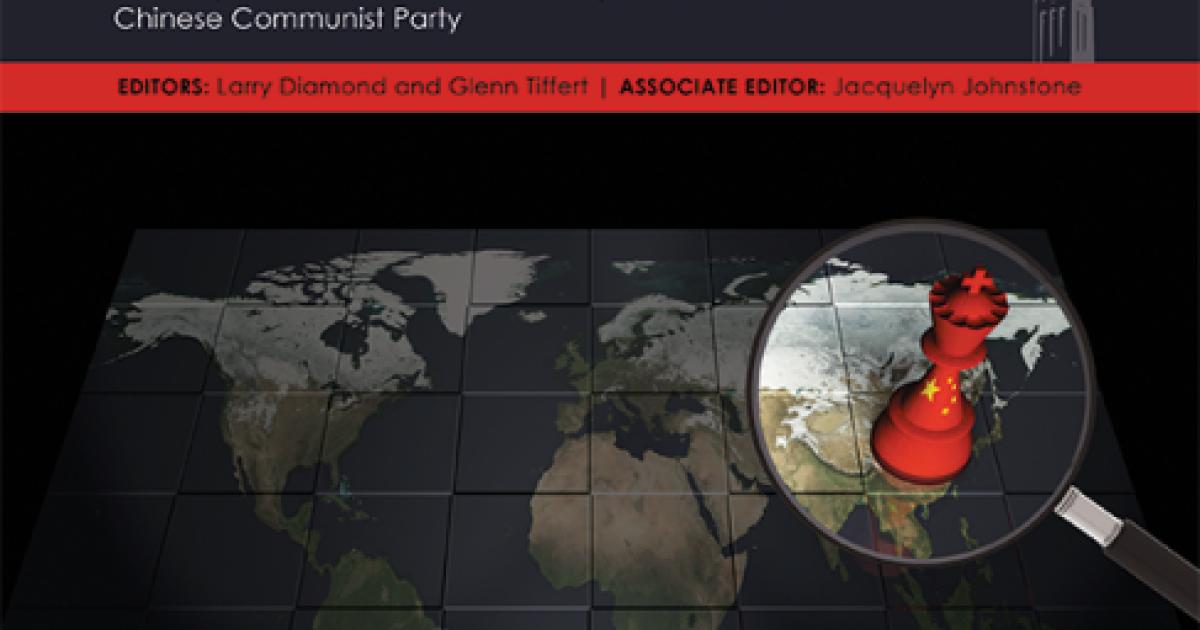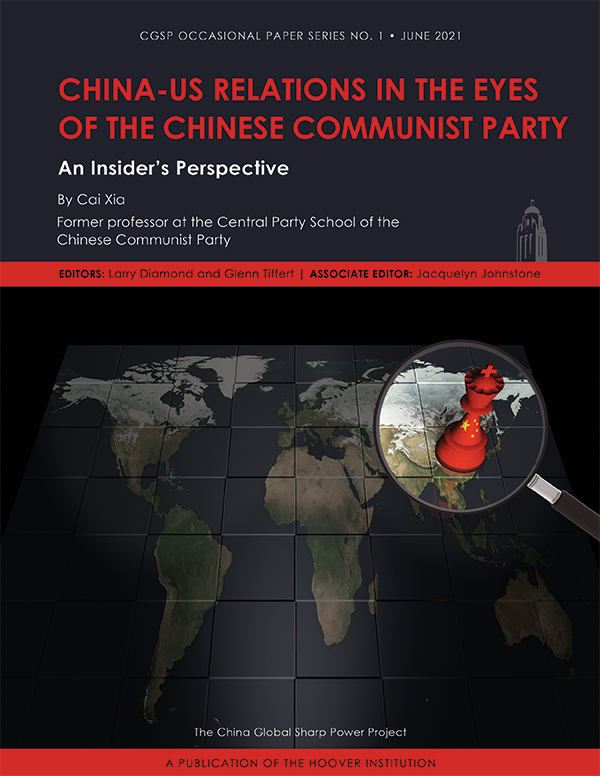
Hoover Institution (Stanford, CA) – The Hoover Institution’s Project on China’s Global Sharp Power has released a new essay by Cai Xia, a dissident and former professor at the Central Party School of the Chinese Communist Party (CCP), that presents an insider’s account of the CCP’s historical world view and reveals the current perspective of Beijing’s leaders about their relationship with the United States. The essay is being published in an English and Chinese bilingual edition.
Cai traces the recent history of US-China relations, beginning with the policy of engagement initiated by President Richard Nixon’s historic meetings with Chairman Mao Zedong and Premier Zhou Enlai in 1972; through Deng Xiaoping’s reformist policies of the 1980s; to the CCP’s current belief under Xi Jinping in its inevitable ascendance over the United States.
Cai describes how America’s policy of engagement was based on Nixon’s belief that if China was not integrated into the world community, it would become a long-term threat to global security. Furthermore, closer ties with China would enhance America’s geostrategic position in its Cold War competition with the Soviet Union. Nixon and his successors also held that exposure to the West could help produce political, economic, and social liberalization in China.
However, Cai writes that CCP leaders have taken a different view and hidden their intentions all along. Deng Xiaoping only loosened China’s foreign policy for the purpose of rebuilding its economy. Following the deadly suppression of the Tiananmen protests in 1989 and the collapse of the Soviet Union, she explains that he reformulated the CCP’s domestic and international strategy. Aware that China lacked the capacity to meet the United States on an equal footing, Deng articulated the doctrine of “hiding our capacity and biding our time” (taoguang yanghui), which CCP leaders generally observed up to the 2008 Beijing Olympics.
Cai maintains that when President Xi Jinping took power in 2012, ultra-nationalist sentiments were beginning to spread within the party. Xi harnessed this fervor by consolidating power and projecting an aggressive, domineering, and arrogant world view. This attitude, coupled with underlying insecurity about the future of its political legitimacy, has led the CCP to commit egregious human rights abuses such as the genocide of Uighur Muslims in Xinjiang, and to increase tensions in the South China Sea, East China Sea, and the Taiwan Strait.
The CCP, Cai explains, has also gone on the offensive through pervasive propaganda and influence operations directed at universities, media, finance, and other institutions in the United States and other democracies. Beijing’s diplomacy has grown more confrontational, particularly during the COVID-19 pandemic, when it accused the United States of responsibility for the virus’s spread.
Cai counsels US policymakers that relations with China are destined to be defined by standoff and confrontation in large part because the Chinese Communist Party is by nature totalitarian, belligerent, unpredictable, and unwilling to follow the norms of a democratic rules-based order.
At the same time, she concludes that the CCP regime is a “paper tiger” even though it would like to think of itself as a “hungry dragon.” Its vulnerabilities include an unsustainable economic model and high levels of debt; an incompatible dual-track ownership system between the market and the state; widening social disparities; continuing corruption; and fierce infighting for succession to supreme political power.
US leaders should therefore be prepared for the CCP’s disintegration. This means continuing support for China’s civil society and for reformers within the party so as to realize the peaceful democratic transformation of China.
“Cai’s essay is of great historical and policy significance,” says Hoover senior fellow Larry Diamond, chair of Hoover’s Project on China’s Global Sharp Power. “For the first time, we have an important figure from within the Chinese Communist Party system courageously confirming what many US scholars of China have recently been arguing: CCP leaders have never viewed cooperative engagement with the US as anything more than a temporary tactic to enable them to accumulate the strength to pursue regional and global dominance. China today is a neo-totalitarian regime bent on ‘internal suppression and external expansion,’ Cai argues, and the US must not only stand up to its bad behavior but support elements in China’s civil society that are seeking democratic change.”
Click here to read Cai Xia’s essay, “China-US Relations In The Eyes Of The Chinese Communist Party: An Insider’s Perspective.”
For coverage opportunities, contact Jeffrey Marschner, 202-760-3187, jmarsch@stanford.edu.







